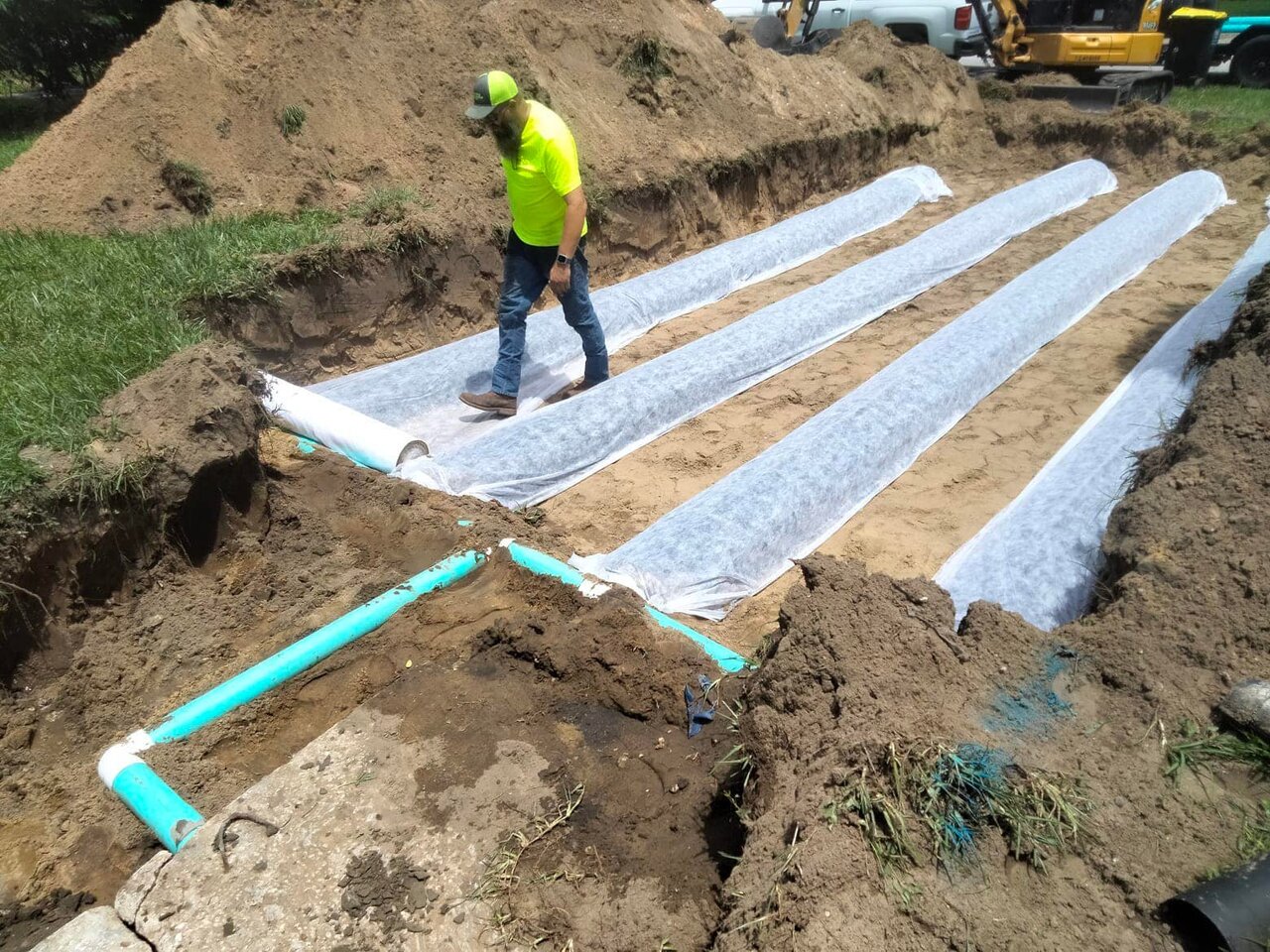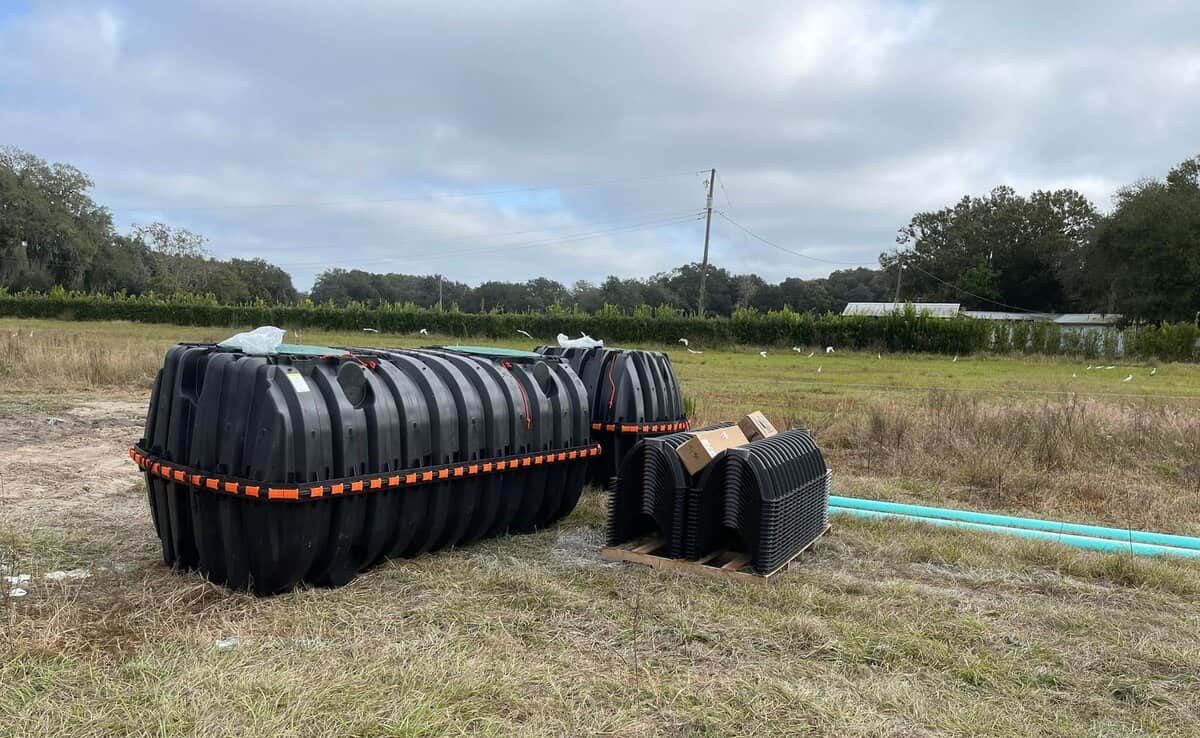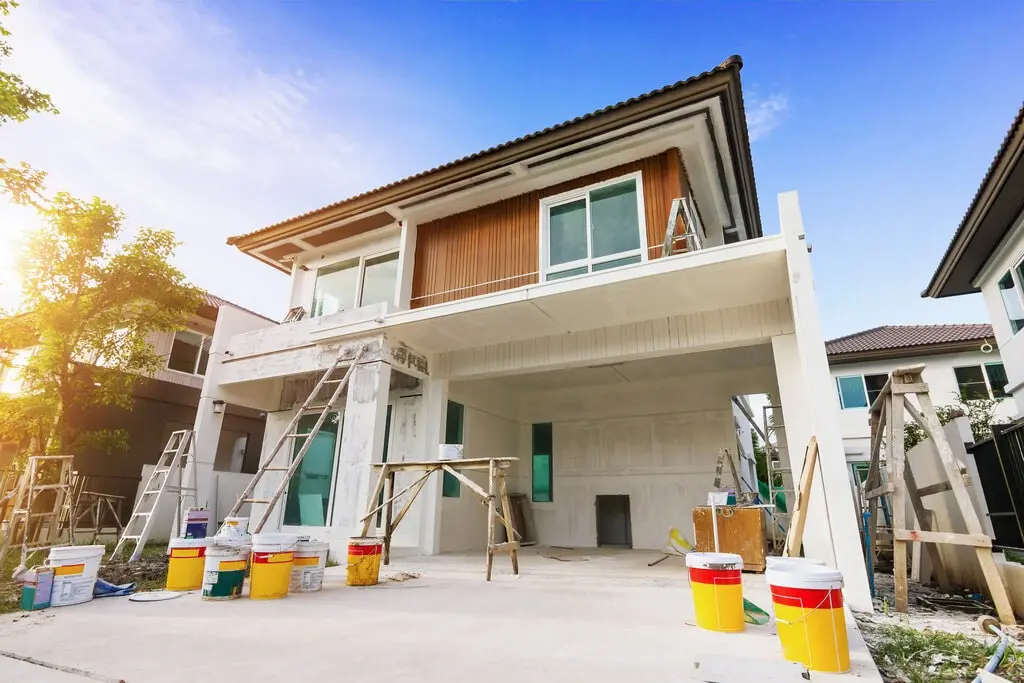Homeowners with septic systems can generally enjoy the benefits of their onsite wastewater treatment system without giving it much thought. However, sometimes concerns arise about how weather can impact the operation of the system.
Modern septic systems are designed to operate effectively regardless of whether it is hot or cold, but there can be differences in their efficiency depending on the outside temperature.
Common Challenges for Septic Tanks in Warm Weather
Here are a few of the challenges that hot weather can pose for your septic system:
Increased Water Usage
During hot weather, people tend to use more water than usual. Warmer temperatures can lead to more showers/baths and more laundry.
This increased water usage can lead to higher levels of wastewater being sent into the septic tank, which may cause problems in the tank due to an imbalance of wastewater and solids.
Increased Rainfall
Some areas of the country receive dramatically increased precipitation during the warmer months. This can lead to the septic drain field becoming oversaturated. If the drainfield cannot absorb and process the effluent from the septic tank quickly enough, a backup can result.

Increased Bacteria Levels
The ideal temperature for the bacteria in a septic tank is between 75 and 90 degrees. Warm temperatures create an ideal environment for bacteria growth, which can cause foul odors, clogs, and other septic system problems.
Faster Decomposition
When temperatures increase, organic materials decompose more quickly, leading to an overloading of the tank and clogging issues. This can be especially problematic for older tanks that may not be equipped to handle such an increase in waste.
Tips for Septic System Owners During Warmer Weather
For homeowners living in areas where warm weather is common or expected during certain times of the year, there are a few steps they can take to ensure their septic system continues functioning as expected:
Regular Septic Tank Pumping
Both the Environmental Protection Agency and septic professionals typically recommend having a septic tank pumped every three to five years, depending upon the size of the tank and the amount of water usage in the home. Setting up a schedule for having the tank pumped and other routine septic services performed can go a long way toward ensuring that it is prepared for the increased demand that warmer weather can bring.
Regular Inspections From a Septic Professional
Whether you are experiencing warm weather already or not, having your system inspected is important for catching potential problems early on before they become bigger issues later. The inspector should check all components of the system, from pipes and pumps to filters and floats, to ensure that there are no issues.

Make Sure the Lid Is Securely Closed
While the lids on modern septic tanks are designed to stay closed even under pressure from heavy rains or windy conditions, older models may require some extra help from you every now and then. Check regularly that your lid is tightly shut, particularly during rainy periods when excess moisture could make its way into the tank if not secured correctly.
Keep an Eye on Your Leach Field
Increased rainfall during warmer periods can cause problems with the drainfield. Keeping an eye on the yard for any signs of a problem, such as wet spots or soggy areas, can help you address issues quickly before they get out of hand.
Additionally, if the grass in the areas of the septic system suddenly becomes more green in a period of dry, warm weather, there could be a leak between the tank and the distribution area leading away from it. This is something that warrants further investigation as soon as possible.
Warm Weather and Hurricanes
Hurricanes and tropical storms can sometimes accompany warm weather in some parts of the United States. Hurricanes and tropical storms can have a significant impact on residential septic systems. These powerful weather events can cause flooding, property damage, and other problems that may affect the operation of septic systems in the area.
The Risks Posed by Hurricanes and Tropical Storms
The main risk posed by hurricanes or tropical storms is flooding. Flooding can occur due to heavy rains from the storm itself or from any storm surge that may occur in coastal areas. This flooding can lead to a variety of problems for septic systems, including inundation with water. This can cause overflows of wastewater above ground, leading to contamination of both natural water sources such as rivers, lakes, or streams. Soil contamination can also occur due to runoff carrying waste matter away from its intended site of treatment.
In addition to this, flooding caused by hurricane/tropical storm rains can also cause pipes within septic tanks to become clogged due to sediment build-up which further exacerbates the situation, especially if left unattended for an extended period of time.
Tips for Homeowners Before a Hurricane or Tropical Storm
For homeowners in areas prone to hurricanes or tropical storms there are several steps they should take before one hits in order to ensure their system is operating optimally:
- Have your system inspected to check for any potential problems that could be exacerbated by flooding.
- Double check to make sure that the lid of the septic tank is securely closed and cannot be opened by high winds or rising water levels.
- Check any filters, pumps, floats, and other components for proper operation.
- Clean out the area around the tank to ensure any debris or sediment is not blocking drainage lines.
- Check that your alarm system is properly connected and grounded so that it does not become a hazard in high winds.
Septic Service In & Near Lakeland
When you need a septic company in and near Lakeland, contact the professional team at Septic and Drainfield Depot. We provide a full range septic services to homeowners and commercial property owners throughout central Florida.
As a fully licensed and insured septic company in the state of Florida, we have the experience and knowledge to handle your septic system needs, from regular septic tank pumping to drainfields and lift stations.
Contact us today for a free estimate.







